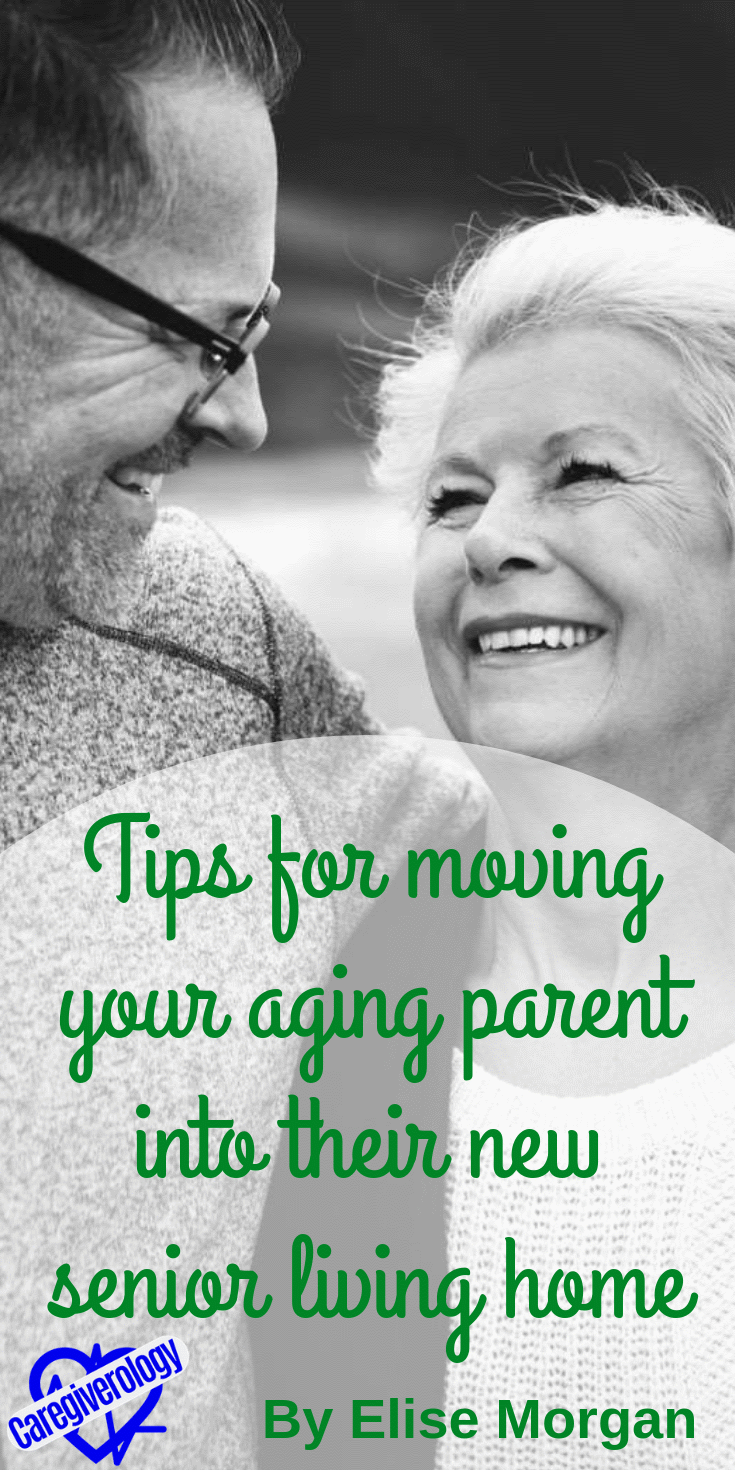Tips for Moving Your Aging Parent into Their New Senior Living Home
 Image by rawpixel
Image by rawpixelCaring for an elderly parent can feel like equal parts heavy responsibility and priceless gift of time spent with a loved one.
Most of us must take on that task, and the emotional baggage, at some point in our lifetime. The key event in that process could be when we move mom or dad out of the family home and into a senior living home.
It's an overwhelming thought, guiding your parents from one phase of life to potentially their last phase of life. We here consider it quite a human response if you don't feel up to the job. After all, you will have to climb many hills and survive a few dark alleys along the way.
That's why we also advocate using the proverbial hiking stick and take a metaphorical buddy along for safety. In other words, ask for help!
Even just reading this is a great first step. If you're in the process of moving your elderly parent to a senior home, here is some advice to safely get you from Point A to Point B.
Agreement Space Essentials Facility Hobbies Exercise Independence Love Pin
First, make sure you and your parent agree about the pending move.
Common sense, right? But how many of us are avoiding having an end-of-life conversation with our parents? It's tough.
Speak honestly with your parents about why you think they should move to a senior living place. It may be a financial decision, as it could be too hard for them to maintain a big, family home. Or, it could be a physical reason, i.e. they can't get up and down stairs anymore.
Push the importance of having people around to help and of having regular company; of having healthy meals prepared by someone else and accessible activities. Remind them they don't have to tend the yard or gutters anymore living in a senior community.
Once you all agree, the next step is figuring out how best to move one full life into a smaller space. Start by choosing things that feel like home now to decorate the new space later.
While packing, toss as much as you can, but keep important, smaller, tangible things. They will serve as emotional touchstones (photos, a favorite chair or blanket, etc.) in the new home and perhaps make the change more bearable.
While you're at it, scan all photos for posterity and make sure siblings and family historians have digital copies. It's also a good idea to keep family portraits that evoke a wonderful past for your elderly parents or relative. Start with the ones they already keep at their bedside, or on the mantel.
Your loved ones may be holding onto something that reminds them of their won parents. my father keeps a chunk of coal in a glass case in his office, a reminder of my grandfather's days working the coal mines of Colorado. My mother keeps two of my grandmother's college essays, which include margin notes in her lovely handwriting.
Those things carry a lot of emotional weight for my parents. You can't bring everything, but you know which specific things mean the most. Be judicious and sensitive. (P.S. You might want to measure the new space so you know if wall art or furniture will actually fit in the new spot.)
While you're sorting, look to replace essentials that are past their prime, so the new place feels comfortable.
Any place that feels uncomfortable won't feel like home. We are talking about replacing things like shower curtains, closet hangers and storage, as well as bed linens and mattresses.
You spend one-third of your life sleeping. Seniors need at least 7 hours per night to enhance their physical and mental health. If your family member's bed is old and preventing them from sleeping well, that will make the new place feel foul and unfriendly as well.
If your family member is sleeping poorly and hasn't had a new mattress in 7-10 years, it's time to consider bringing a new one in to their new living space. There are many models and brands that are well-suited for anyone suffering from senior-specific conditions that make it hard to sleep - arthritis or joint pain, sleep disturbances from medication, sleep apnea, etc. Medium to medium-firm mattresses using a combination of materials (e.g. latex and foam) will be kinder to senior bodies.
During the packing, take time to scout the new facility together.
Use the time before moving day to visit their new home often. Mom and Dad can get familiar with the schedule and staff, and they may even start taking part in activities.
Becoming familiar with the place and its people before the move will give them a chance to warm up to it. It will start feeling like home to them sooner, making a good, complete transition.
Once in place, encourage your parent to pursue hobbies and participate in activities.
Staying active and involved is so important to keeping elderly people living well. Seniors often suffer from isolation and being at loose-ends. Living in a new place, they might worry if anyone will visit. They may not have enough to do in the new place.
Some studies looking at friendships and family relationships found that we value family relationships consistently throughout our lives but tend to value friendships more as we age. Seniors need to make friends too, especially when they're new in town.
Once moved in, gently push your parent to put effort into befriending other residents and staying busy. Taking classes and doing activities around the home community will satisfy both needs. There might be painting classes, tai chi or yoga, singing or dancing classes offered in house or in the community. How about Bible study, bridge and bingo nights, or poker gatherings? Whatever it is, you want them to meet people to build a new support system.
When your parents are all moved in, make sure they get regular exercise.
Speaking of tai chi and yoga, there are so many different exercises seniors can do even with mobility issues. For example, they can do chair routines that don't require them to be on their feet, pool workouts that are easy on the joints, or adaptive weight training and circuit training to build muscle tone.
Many senior living facilities will over a range of safe exercise options for their specific clientele. Don't forget the YMCA or community pool for other opportunities. Walking will also keep limbs moving and hearts pumping. The National Council on Aging recommends 30 minutes of exercise per day, five times per week, devoting two days to muscle strengthening.
Also - and this is important for people who may feel lonely - exercise just so happens to be a wonderful, free, and effective antidote for depression.
During the coming months in a new home, everyone will be learning how to gracefully live a new life. Give your parent space to act as independently as long as they can.
Here's the thing: When your loved one is moving out of their longtime home, it may not be their choice. They are losing their autonomy, and perhaps even their sense of self-worth along with it. While asking them to change so much, don't push too hard to control your parent's entire life.
Do your level best to avoid taking too much independence away. Know what tasks your parent easily manages by themselves, including smaller things like grooming or taking public transportation. If they still enjoy singing or reading or greeting at church services each weekend, make sure they have the means to do so.
Finally, helping someone you love deal with what might be their final move won't be easy. So, as the adult child, act pragmatically, but with love.
That's not new-age rhetoric. It's a sound and practical way to approach such a huge task. You are loving them and caring for your parent's welfare by navigating this process with them.
Remember to give yourself a break when bad days come. Let yourself off the hook if you feel guilty or stressed.
Remember that your mental and physical health is just as important as your family member's in the weeks and months ahead.
Thank you Elise Morgan for contributing this article.
Pin this article!
Guest Articles Written for Caregiverology
From Tips for Moving Your Aging Parent into Their New Senior Living Home to Caregiverology Home
Recent Articles
-
Common Truck Crash Injuries and Legal Remedies - Caregiverology
Jul 19, 25 10:49 AM
Known for its sun-drenched beaches, vibrant arts scene, and bustling maritime industry, Fort Lauderdale is a city that sees heavy traffic both on its roads and at its busy port. Unfortunately, with th… -
Why Expert Legal Help Matters After Serious Injury - Caregiverology
Jul 19, 25 10:35 AM
In Houston, over 67,600 car crashes occurred in 2023, resulting in 290 fatalities and 1,612 serious injuries. That’s roughly 185 accidents every day. -
How Life Care Planners Support Injury Recovery - Caregiverology
Jul 19, 25 10:18 AM
In Los Angeles, life care planners play a vital role in supporting injury recovery, especially for individuals facing catastrophic injuries such as traumatic brain injuries or spinal cord damage.





New! Comments
Have something to say about what you just read? Leave a comment in the box below.